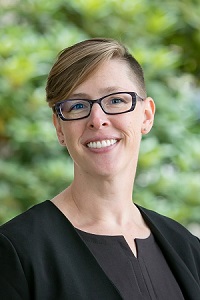Rethink the classroom with MBL
The legislatively-mandated Mastery-based Learning Work Group has released its 2020 report showcasing recommendations for mastery-based education in Washington. The following is an introductory letter from 2018 National Teacher of the Year, Mandy Manning:
 To Washington educators, parents, families, and communities,
To Washington educators, parents, families, and communities,
Before the 2020 pandemic, we knew systemic racism and inequity existed in our country and in our state. We understood that the old school model does not provide equitable opportunities for all students. COVID-19 has illuminated these injustices in a new light. Now, we must take the time to make real change that can be felt by each and every student from every background. We have the opportunity to improve the way our state’s students, families and educators are served in K-12 education. We need a system that provides opportunities for every student through engagement in our vibrant, diverse communities for the rest of their lives.
The concept of mastery-based learning is not new. But in some Washington schools, we can see a modern form of this kind of education tackling barriers to student success, closing the opportunity gap, and engaging students in learning that is relevant to them based on their passions, experiences and cultures.
Mastery-based learning allows students and teachers to build relationships. Educators are given a chance to truly know their students. Education works best when we recognize that each student has their own strengths and personal identity. When teachers are treated as professionals who are trusted to assess their students’ work and needs without the old model (which relies heavily on standardized testing), magic can happen.
Imagine a class in which students who are passionate about the environment can present to their peers about the impact of global warming on Washington’s salmon population. Imagine them working with the Nisqually tribe on conservation projects—and getting credit towards their high school diploma. Consider a course where students work with community professionals to construct tiny homes for displaced peoples resulting in fewer homeless people in our state. These are examples of the kind of learning that is possible in mastery-based education. Students flourish in environments where learning means they are empowered to take ownership over their education; and educators thrive when they can apply meaningful ways to gauge their students’ progress.
The Washington Legislature created the Mastery-based Learning Work Group to carefully consider how education like this will be effective and meaningful for our young people. With consideration for all students’ needs, and with deep acknowledgement for culturally responsive family and student engagement, the group’s recommendations should be understood and supported by each diverse Washington community and by the Legislature. It is time to consider how mastery-based education can make real change for our students, our schools and our future.
Sincerely,
Mandy Manning 2018 National and Washington State Teacher of the Year
Special thanks to Mandy Manning for sharing her experience and voice with the Mastery-based Learning Work Group! Read the full report or learn more about the high level concepts from the report in the graphic summary version.
